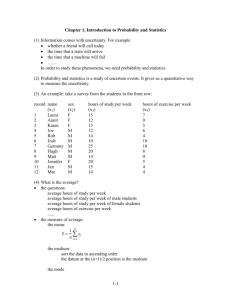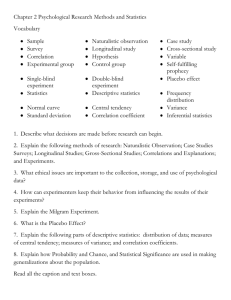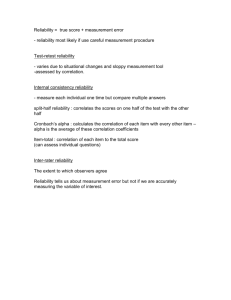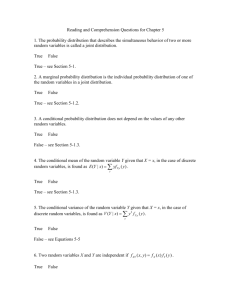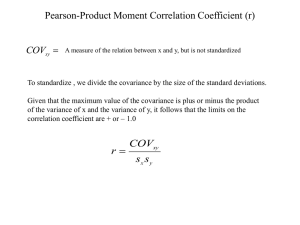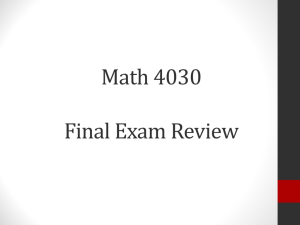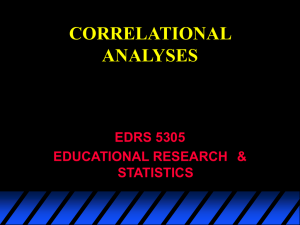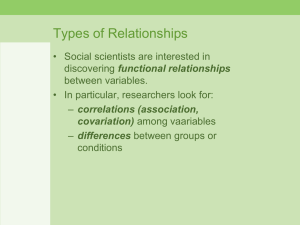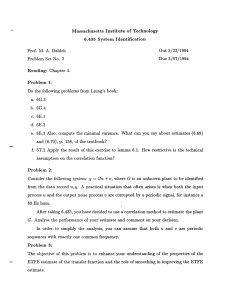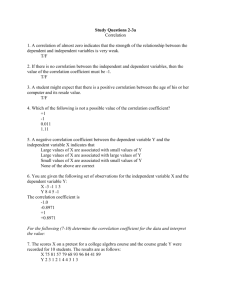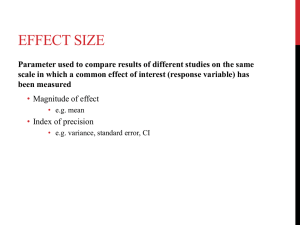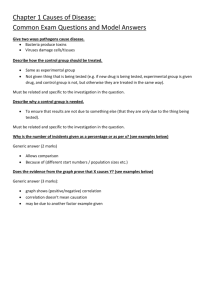Effect Size and Correlations
advertisement
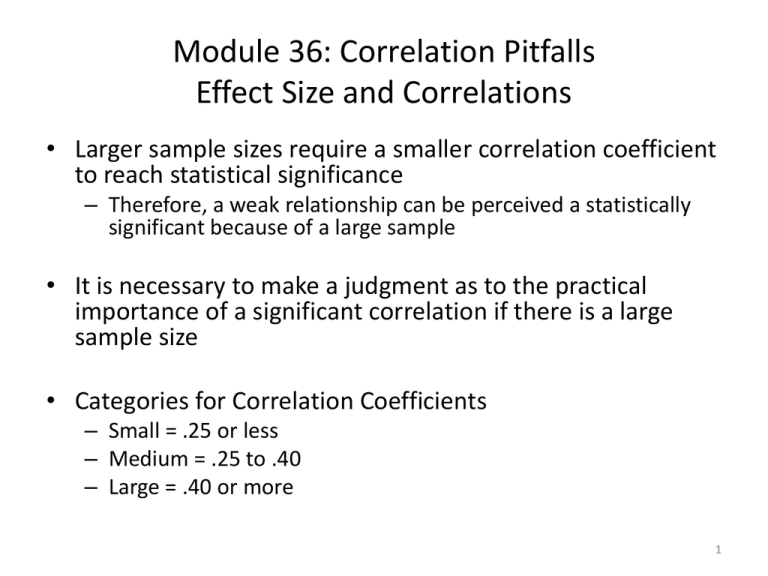
Module 36: Correlation Pitfalls Effect Size and Correlations • Larger sample sizes require a smaller correlation coefficient to reach statistical significance – Therefore, a weak relationship can be perceived a statistically significant because of a large sample • It is necessary to make a judgment as to the practical importance of a significant correlation if there is a large sample size • Categories for Correlation Coefficients – Small = .25 or less – Medium = .25 to .40 – Large = .40 or more 1 Restriction of Range • Correlation coefficients can be biased if the full range of possible scores are not included in the sample 2 Heterogeneity and Homogeneity • Heterogeneity means that a sample contains a diverse range of score across possible subgroups • Homogeneity indicates that participants are similar across subgroups that are potentially in the sample 3 Common Variance • Common variance is the proportion of variance that is shared across two variables • A correlation coefficient is not a measure of common variance – r2 is a measure of common variance 4 Correlation Does NOT Imply Causation • Correlations do not imply causation • A significant relationship between two variables does not indicate that variation in X causes variation in Y 5
